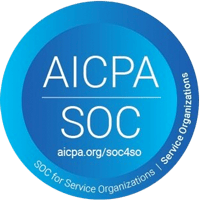The rise of digital HR processes in healthcare is a great thing in many ways. Digital recruitment can help speed up hiring, which is critical during a nationwide nursing shortage. But with more employee information stored digitally, it’s also time to think about security. Do your healthcare privacy standards extend to your employees?
How do you protect your most valuable asset—your staff—with the same level of confidentiality that you give your patients?
Here’s what you need to know.
1. Digitize Paperwork for Security
If you haven’t already, now is the time to create digital copies of your paperwork. Let’s face it—if the only place you keep sensitive information is in physical file cabinets, those documents aren’t safe. Hard copies of employee records are vulnerable to both damage and unauthorized access.
Just this April, a California man was arrested after breaking into a police office and going through filing cabinets. Healthcare has seen recent breaches, too. In February 2020, Health Share of Oregon reported that an unknown person broke into one of their offices and stole a laptop, exposing sensitive information from 654,000 patients.
Whether or not you’re concerned about malicious threats, physical records are just riskier than digital ones. This is a problem for healthcare organizations that rely exclusively on file cabinets. On top of this, filing paperwork is costly—and since healthcare organizations maintain records indefinitely, they can take up an excessive amount of physical space.
The good news is that it’s never been easier to bring your paperwork online.
Digital processes have forever changed healthcare hiring and employee management. That being said, virtual records do have their own vulnerabilities. Make sure you’re using an encrypted platform, and that it’s only accessible by the people who actually need the information.
2. Elevate Your Security Training Sessions
HIPAA requires periodic security training, but the specifics are largely up to individual organizations. You have a lot of opportunities to make the most of security training, adapting them to actually suit your organization’s needs.
Security training shouldn’t only affect staff who deal with patient information. Extend your HIPAA training to include all staff in your facility, including HR. Emphasize that protecting employee information is just as important as protecting patients.
Remember that interactive training sessions are more effective than static ones. A by-the-books training video might satisfy basic requirements, but that doesn’t mean it will stick in employees’ minds. This is your chance to get creative. Gamify security training by roleplaying a security threat. Try describing a scenario that threatens healthcare privacy, and ask participants to identify the risks.
Employee comprehension is vital. In 2018 alone, phishing attacks increased by 250%, and in 2020, the FBI ranked phishing as the most common cybercrime of the year. Since it’s relatively likely that individual employees will be targeted by this kind of attack, it’s critical that each member of staff can recognize them. Train staff to recognize suspicious emails, and your organization will be safer on every front.
3. Protect Healthcare Privacy by Centralizing Paperwork
Avoid having multiple copies of sensitive documents stored across different locations. This increases the chance that private information will fall into the wrong hands, whether intentionally or through human error. Keep your paperwork in a secure digital location, and limit who has access to this platform.
Centralizing employee records also allows you to track the status of paperwork more easily, so you can increase efficiency along with healthcare privacy. A secure human resources management system can help you organize employee records and protect sensitive information. With software like this, you’ll spend less time searching for employees’ contact information when you need it, and you won’t risk losing track of credential expiration and renewal dates.
For more help storing sensitive information securely, download our Data Security Checklist below.
[hubspot type=cta portal=8266959 id=4a960ec6-c539-429b-a1d0-3a3ff6242d2b]Conclusion
At Apploi, we’re committed to simplifying hiring, onboarding, and employee management for healthcare HR professionals. From recruitment marketing to secure documentation storage, we offer a robust, customizable platform that helps you manage the employee lifecycle.
Interested in learning more about bringing your HR process online? Contact us today for a free demo of our end-to-end solution.





